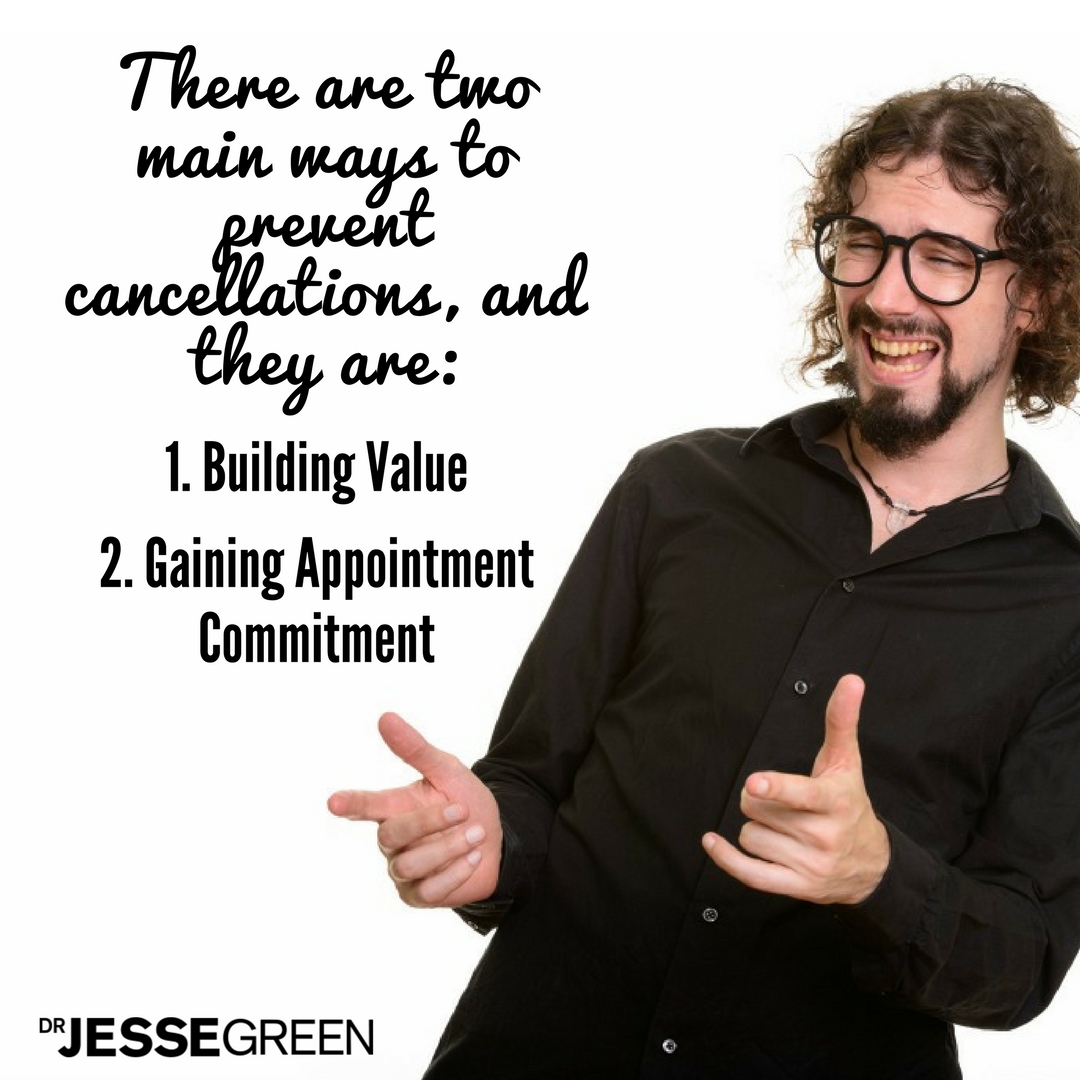Frustrating aren’t they?
Patient cancellations, I mean. You have a full day booked, but then out of the blue people cancel.
Or worse. They fail to turn up for appointments.
So your full day becomes full of holes.
And if you’re not careful, you’ll never see those patients again. That’s right, they might disappear forever.
So how can you stop this happening?
How can you prevent patient cancellations?
Is that even possible?
Well, it turns out it is possible. Not only possible but relatively simple too.
You see, this problem is usually preventable and is typically the fault of the practice – not the patients.
Years ago a mentor taught me that the purpose of an appointment is to book another appointment.
Clearly, creating a practice that has minimal time lost to these causes is critical for both patient flow and cash flow.
However, what is often overlooked is the importance of minimising cancellations and no-shows to aid patient retention. The loss of a patient is usually preceded by a cancellation or no show.
There are two main ways to prevent cancellations, and they are:
- Building Value
- Gaining Appointment Commitment
So, the key to preventing cancellations is to build value and to obtain appointment commitment for every appointment.
How To Build Value
Here’s the thing that no one will tell you: The cancellation process did not start on the day of the scheduled appointment.
The cancellation process started at the time of the previous appointment or last contact with the practice.
The problem is that the dentist and other team members have not built value for the next appointment. The patient is constantly faced with competing priorities, so it’s easy for them to push off the dental appointment because they don’t realise that they are losing anything.
What should happen is that during the appointment and at the end of the appointment, the dentist must clearly explain why it is important that the patient return.
By elevating the priority of dental treatment in the mind of the patient, they are more likely to keep the appointment if there are conflicting priorities. Value for appointments is built before, during and after the appointment.
Obviously, some patients will cancel for perfectly legitimate and compelling reasons such as a death in the family or the patient wins an overseas trip (yes, this happens) or whatever. But your reception staff need to be able to determine what is reasonable and what is merely pushing the appointment off.
How To Gain Appointment Commitment
In his book, Influence – The Psychology of Persuasion, Robert Cialdini discusses six psychological principles that are involved in the ability to be influential. One of these is the principle of Commitment and Consistency.
Cialdini states, “Once we have made a choice or taken a stand, we will encounter personal and interpersonal pressures to behave consistently with that commitment.”
The premise of Cialdini’s argument is that when a declaration is made publicly, the person is far more likely adhere to it.
When a commitment is first sought by the practice and then given by the patient, the likelihood of a last-minute cancellation or no-show is greatly reduced.
How do you gain this commitment? Simply say something like this to the patient:
“OK Mrs Jones, we’re looking forward to seeing on Wednesday at 3.10 pm for your examination. So, you’ll be OK to keep that appointment?”
Note: If the appointment is being made in person, say this as you hand the appointment card over. Keep hold of the card until they make the commitment.
What To Do If a Patient Cancels
Even with the best intentions, patients may still cancel, and knowing how to handle that is essential. If a patient does ring up to cancel, take the following steps:
1. Establish If The Cancellation Is Avoidable
Motivate the patient to keep the appointment by referring to their “hot buttons”. I coach my clients to say something like this:
“Mrs. Jones, I see from your file that you’ve had some pain on the upper left-hand side. In order to avoid another episode like that Dr Green really needs to attend to the cavities on the right hand side. Is there any way you can make today’s appointment?” [PAUSE]
2. Make a New Appointment
If the cancellation is unavoidable, remake the appointment immediately and obtain a commitment from the patient to attend.
Rebook the appointment, but try not to be too readily available or the patient may feel you’re at their complete disposal. You do not want patients to treat you as a convenience rather than a trusted advisor.
When making the new appointment, be sure to gain appointment commitment.
If the patient declines to make another appointment immediately, then move on to obtaining permission to contact the patient to make another appointment, and ensure that the recall phone call is recorded in the practice management software.
3. Handling Repeat Offenders
Where a patient repeatedly cancels, I recommend saying something like this:
“Mr. Smith, when you first came to our practice, I indicated that our philosophy is to be as comprehensive in our approach to dental treatment as possible. When you keep cancelling your appointment at short notice, I am not able to provide the level of care our patients have come to enjoy and expect. I really need you to attend the appointments that you schedule with our practice. Can you help me with that?”
Get Rid of Cancellations, Now
But they’re not acceptable. They impact your bottom line, cause disruption, and can lose you patients.
You don’t have to put up with that.
Instead, implement a simple process for handling cancellations elegantly and effectively.
Build value for your patients and gain their commitment to appointments.
When you do, you’ll see an immediate reduction in cancellations.
Your day will remain fully booked, and you’ll never have to wonder where your patients are disappearing to again!



